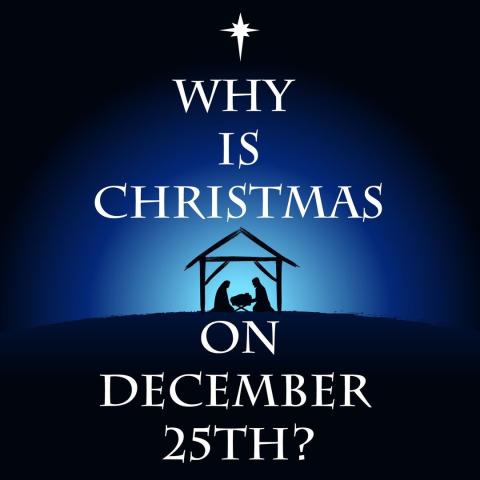Rev. Stephen Milton explores the reasons behind the choice of December 25 as Christ’s birthday.

Why is Christmas on December 25th? The Internet will tell you that Christians borrowed the date from the Romans, who had a sun festival at that time. Romans did party at that time of year, but Christians had already chosen December as Christ’s birthday decades before. But why the 25th?
The key to the puzzle is figuring out when Christians thought Jesus was conceived. Most early Christians believed that the angel Gabriel appeared to Mary during the Jewish festival of Passover. As you may recall, this is also the time of year when Jesus was crucified, some 30 years later. Ancient Christians liked symmetry. It made sense to them that Jesus was conceived on the same date that he was killed. (This same logic was also applied to Moses’ birth and death dates). Passover moved around a bit in the calendar since it is calculated according to phases of the moon, so it can be in late March or early April. Most of the early Christians thought Jesus was conceived on March 25th, the Roman date for the spring equinox (which is incorrect, but back then they did not know that). Add a nine-month pregnancy to March 25th, and you get December 25th.
This date was also appealing because it is around the time when the days begin to get longer than the nights. To Christians this made perfect sense—Jesus is the light of the world, so of course He would be born just as light was overcoming the long nights.
To this day, scholars say there is no way to prove which exact day or month Jesus was born. But the poetic logic of December 25th does have the advantage of giving us a way of lighting up the night on the darkest days of the year, a blessing in itself, and a reminder of Christ’s mission—and ours, too.
—Rev. Stephen Milton came to Lawrence Park Community Church in Toronto in 2019, after decades of work as a documentary filmmaker. His passion is creating new ways to explore spirituality, appealing to people who aren’t interested in regular Sunday morning church services.
The views contained within these blogs are personal and do not necessarily reflect those of The United Church of Canada.
Throughout the Advent season, Advent Unwrapped(opens in a new tab) will be sharing videos, prayers, family resources, and reflections. Follow our Advent Unwrapped Facebook page(opens in a new tab) and subscribe to our newsletter(opens in a new tab) for regular updates.